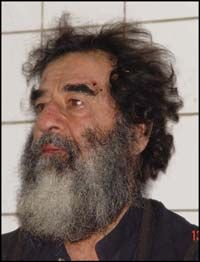To End Dictatorships
Sometimes dictators do allow elections, but they don't resemble what we think of as elections in democratic countries. Under extreme pressure from other countries, Saudi Arabian king Abdullah bin Abdul Aziz al-Saud allowed municipal elections in 2005, the first elections since the 1960s. These elections allowed citizens to choose local councils. They weren't really democratic, however, because Saudi women couldn't vote. Although not expressly forbidden to vote, most women didn't have the necessary photo identification, nor were there enough female poll workers to register them (men couldn't register women to vote). Saudi Arabia as a whole continues to be ruled by an absolute monarchy.
In February 2008, the military junta ruling Burma, called the State Peace and Development Council (SPDC), announced plans for an election in 2010. A spokesperson stated that "the time has now come to change from military rule to democratic civilian rule" [source: Washington Post]. However, most of Burma's citizens, as well as other governments, don't take the junta seriously. In 1990, Burma had a general election in which Daw Aung San Suu Kyi, leader of the National League for Democracy, won. The government refused to acknowledge Kyi's win and has kept her imprisoned for much of the time since the election.
Advertisement

Dictatorships sometimes come to an end just as chaotically as they began. Adolf Hitler committed suicide after the Allies beat the German Armed Forces. Fascist Italian dictator Benito Mussolini was shot by Communist partisans and his body stoned by civilians. Manuel Noriega was captured after the United States invaded Panama and is serving a 30-year prison sentence in a Florida federal correctional facility. Saddam Hussein was deposed after coalition forces took control of Iraq and pulled from a small muddy foxhole by United States Armed Forces near his birthplace in Tikrit. He was later executed by the provisional government of Iraq.
Just as often, nature takes its course. Many dictatorships end when the dictator becomes too weak or sick to continue on, or dies suddenly. Vladimir Lenin suffered a series of strokes and took lesser roles in government before his death. Josef Stalin also had a stroke and died shortly afterwards. In 2008, Fidel Castro stepped down as leader of Cuba (passing the presidency to his brother Raul) after several years of worsening health.
For the most part, dictators tend to stay in power for a very long time. Or they're deposed only to be replaced by another dictator. It takes a long time to change an entire governmental structure, and often it doesn't happen without the intervention of the United Nations, the United States or other governmental organizations. Currently, more than 70 countries in the world are ruled by dictators. Many of them are guilty of atrocities against their own people.
Non-governmental organizations, such as Human Rights Watch research, report on and publicize human rights violations. They also exert pressure on governments and international organizations to bring about reform in areas of extensive human rights abuses. Perhaps the recent removals and resignations of dictators signal a trend toward elected rulers who allow their citizens the basic freedoms that many of us take for granted today.
For more information on dictators, fascism and all things politics, try the next page.
Related Articles
- How Communism Works
- How Fascism Works
- How Socialism Works
- How Capitalism Works
- How the Spanish Inquisition Worked
- How Cults Work
- How Spies Work
- How Royalty Works
- How Fear Works
- How the Rules of War Work
- Is there a torture manual?
- What is water boarding?
- What happens in a coup d'etat?
- What are the five most prevalent forms of torture and why?
More Great Links
- Dictator of the Month
- Parade: Who Is the World's Worst Dictator?
Sources
- Beehner, Lionel and Paul Cruickshank. "The post-dictator era." Guardian Unlimited, March 3, 2008.
- Brzezinski, Friedrich. "Totalitarian Dictatorship and Autocracy." Harvard University Press, 1965.
- Chirot, Daniel. "Hidden Tyrants." The Free Press, 1994.
- Cobban, Alfred. "Dictatorship: In History and Theory." Charles Scribner's Sons, 1939.
- Dictator of the Month http://www.dictatorofthemonth.com/English/English_welcome.htm
- "Dissidents Decry Burmese Junta's Election Plans." WashingtonPost.com, Tuesday, February 12, 2008. http://www.washingtonpost.com/wp-dyn/content/article/2008/02/11/AR2008021102575.html
- Martin, Bradley K. "Under the Loving Care of the Fatherly Leader: North Korea and the Kim Dynasty." St. Martin's Griffin, 2006.
- Mesquita, Bueno de, et al. "The Logic of Political Survival." Massachusetts Institute of Technology, 2003.
- Plutarch. "The Parallel Lives." Loeb Classical Library, 1916. Public domain. http://penelope.uchicago.edu/Thayer/E/Roman/Texts/Plutarch/Lives/Sulla*.html
- Sobel, Corey. "The Seven Wonders of the Totalitarian World." Esquire, February 2008.
- Wallechinsky , David. "Who Is the World's Worst Dictator?" Parade, February 11, 2007. http://www.parade.com/articles/editions/2007/edition_02-11-2007/Dictators
- Zakaria, Fareed. "The Rise of Illiberal Democracy." Foreign Affairs, December 1997.
